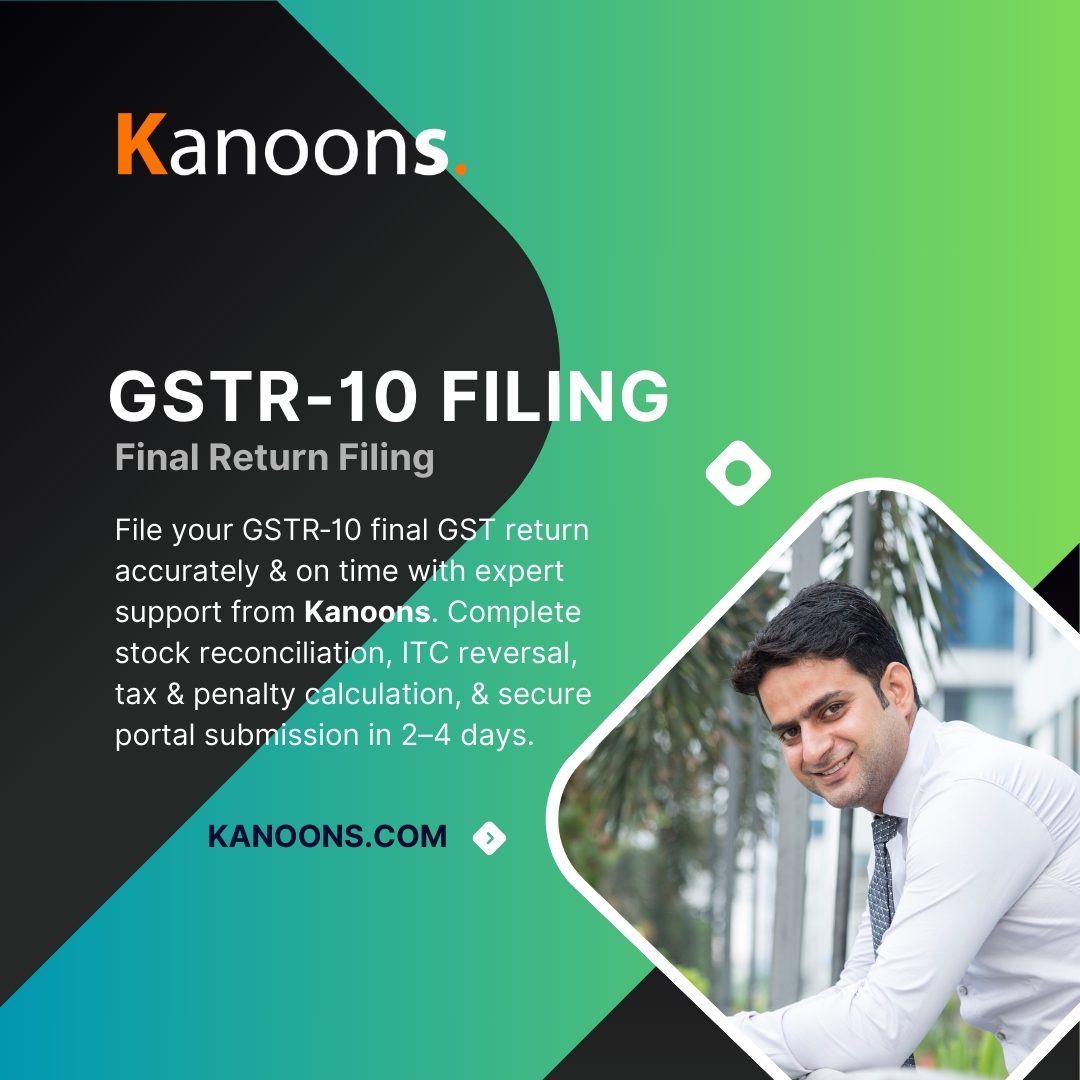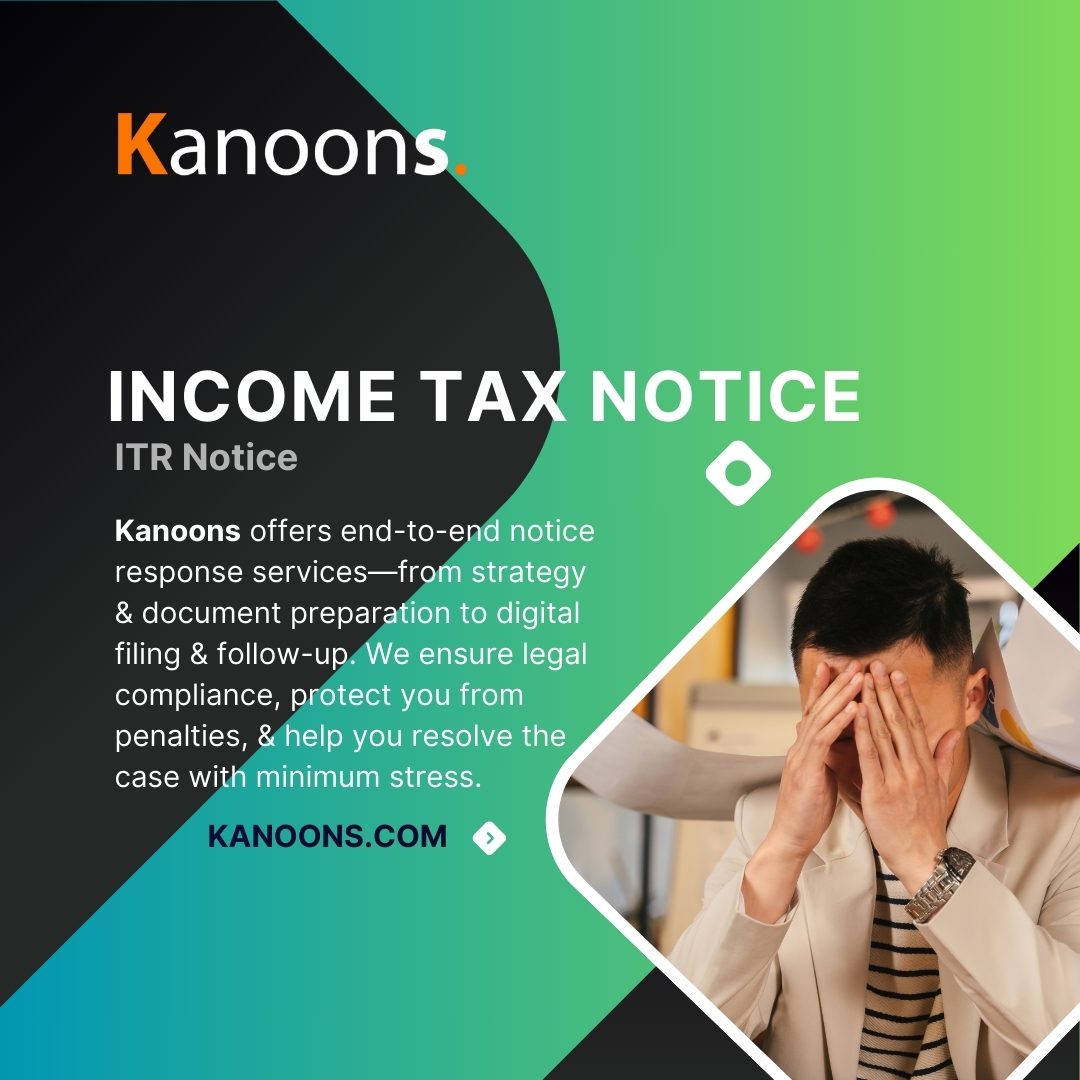
Previous Year’s ITR Copy
Projected Income & Profit & Loss Account (for businesses)
TDS Certificates (Form 16/16A)
Bank Account Details for payment proof
Investments and Deduction Proofs
AIS and Form 26AS download for cross-check
Terms & Conditions
Obligation to Pay Tax:
As per Sections 208 and 210 of the Income Tax Act, individuals/businesses with estimated liability above ₹10,000 must pay advance tax.
Self-Assessment Tax must be cleared before ITR filing under Section 140A.
Accuracy of Data:
Estimations are made on the basis of details provided by clients.
Any discrepancy due to non-disclosure or incorrect information is the client’s responsibility.
Penalty & Interest Responsibility:
Kanoons is not responsible for interest/penalty levied due to delay by clients in providing data or delay in making payments.
Refund Policy:
No refund after initiation of calculation services.
Partial refund may be considered before challan generation.
Payment Support Only:
We assist in payment but actual remittance is the client’s responsibility.
Legal Disclaimer:
Kanoons acts as a facilitator. Final responsibility for compliance rests with the taxpayer.
Advance & Self-Assessment Tax
Stay Compliant and Avoid Interest Penalties – Timely Advance and Self-Assessment Tax Payment with Kanoons!
Advance Tax is the payment of income tax in parts throughout the financial year instead of lump sum payment at the end. It is also called “Pay as You Earn” tax.
Self-Assessment Tax is paid after the end of the financial year, before filing the Income Tax Return, to clear any remaining tax liability after considering TDS, Advance Tax, etc.
Both payments are crucial for full compliance under the Income Tax Act, 1961, and failure leads to heavy interest and penalties.
At Kanoons, we help you compute and pay these taxes correctly and on time, minimizing risks of non-compliance and ensuring smooth tax filing.
Why Choose Advance & Self-Assessment Tax Filings? (Advantages & Disadvantages)
Advantages:
- Avoidance of Interest and Penalty
- Easier, Faster ITR Filing Process
- Improved Cash Flow Planning
- Better Financial Discipline and Tax Forecasting
- Full Legal Compliance
Disadvantages:
- Payment Deadlines Can Be Missed Without Guidance
- Need for Estimation and Revision of Income Quarterly
- Overestimation Can Lead to Refund Claims and Blockage of Funds
Who Should File an Advance & Self-Advance Tax Returns?
- Individuals with tax liability exceeding ₹10,000 after TDS.
- Freelancers, professionals (doctors, lawyers, consultants) with no TDS deductions.
- Businesses under presumptive taxation (optional for 44AD/44ADA but beneficial).
- Companies and LLPs on profit estimation.
- Senior Citizens (above 60 years) without business income are exempted from advance tax.
Documents Required for Advance & Self-Assessment Tax Filing
- Previous Year’s ITR Copy
- Projected Income & Profit & Loss Account (for businesses)
- TDS Certificates (Form 16/16A)
- Bank Account Details for payment proof
- Investments and Deduction Proofs
- AIS and Form 26AS download for cross-check
Income Tax Returns Filing Process (Step-by-Step)
For Advance Tax
- Income Estimation (Form 28A)
- Tax Liability Calculation
- Quarterly Payment Schedule
-
Quarter Due Date % Payable Q1 June 15 15% Q2 Sept 15 45% Q3 Dec 15 75% Q4 March 15 100% - Challan 280 Payment
- Form 26AS Reconciliation
For Self-Assessment Tax
- ITR Preparation
- Tax Deficiency Calculation
- Challan 280 Payment
- ITR Filing with Proof
What’s Included in Our ITR Filing Package?
- Advance Tax Computation for all quarters
- Self-Assessment Tax Computation at year-end
- Challan Filling and Payment Support
- Ledger Matching Support in Form 26AS
- Compliance Check for Section 234B & 234C
- Basic Tax Planning Session
Post-Payment Compliances
✔ Updating Challan Details: While filing ITR under 'Taxes Paid' schedule.
✔
Ledger Matching: Ensure payment reflects correctly in Form 26AS/AIS.
✔
Rectification Support: Correction of wrong challan details if needed.
✔
Refund Handling: If extra payment made, assist in refund claim.
✔
Notice Response: Handling notices for short payment/interest demands.
✔
Advance Tax for Updated Return Filing: For late disclosures under Section 139(8A).
Why Kanoons?
🌟 Accurate Advance Tax estimation and quarterly reminders
🌟
Proper computation of Self-Assessment Tax to avoid surprises during ITR filing
🌟
Timely Challan Generation (ITNS 280) and assistance in payment
🌟
Strategic Tax Planning to minimize advance tax burden legally
🌟
Complete support for Form 26AS matching and ITR reporting
🌟
Handling notices under Section 143(1) and Section 139(9)
Failure to meet Advance & Self-Assessment Tax Filing obligations can result in severe consequences:
- Interest under Section 234B: 1% per month for shortfall in tax payment (>90% of assessed tax).
- Interest under Section 234C: 1% per month for deferment of quarterly advance tax instalments.
- Late Fee for Late ITR Filing: ₹1,000 to ₹5,000 under Section 234F.
- Scrutiny and Notices: Increased risk of scrutiny if taxes are underpaid.
Income Tax Returns
₹2,000.00 – ₹6,000.00Price range: ₹2,000.00 through ₹6,000.00
Trademark Renewal
₹12,499.00 – ₹16,499.00Price range: ₹12,499.00 through ₹16,499.00
GSTR-10 Returns
₹10,000.00 Original price was: ₹10,000.00.₹4,999.00Current price is: ₹4,999.00.
Valuable insights to change your startup idea
FAQ
Advance & Self-Assessment Tax Frequently Asked Question
What is the due date for Advance Tax payments?
Do salaried individuals need to pay Advance Tax?
What happens if I miss an Advance Tax instalment?
Can I revise my Advance Tax payments during the year?
Is Self-Assessment Tax payment mandatory before filing ITR?
Can I claim a refund if I overpay Advance or Self-Assessment Tax?
Get Started Today!
File Your Advance & Self-Assessment Tax Returns Now & Get Legal Compliance Support!
Limited-Time Offer
Get Your Advance & Self-Assessment Tax Filed at ₹4,999!
Take the first step towards building a legally recognized and protected business. With Kanoons, experience a hassle-free, fully online Advance & Self-Assessment Tax Filing backed by expert legal and compliance support.
© 2025 Copyright. All Rights Reserved by Kanoons
Kanoons.com is owned and operated by Kanoons Law and Tax Consultants Private Limited, a registered consultancy providing services in the areas of advisory, documentation, business registration, taxation, compliance management, and intellectual property filings across India.
Kanoons is not a law firm or accounting firm, and does not offer legal representation, statutory audits, attestation, or certification services. All specialised professional work is coordinated through authorised and independently qualified professionals, in accordance with applicable Indian laws.
All content on this website is intended for general informational purposes only and should not be interpreted as legal, financial, or tax advice. Use of this website or communication through it does not create any attorney–client, accountant–client, or other professional relationship with the company. Users are encouraged to seek independent professional advice before making any decisions based on content or services provided herein.
Your access to and use of this website are subject to our Terms & Conditions, Privacy Policy, Refund and Returns Policy and Disclaimer By continuing to browse or interact with the site, you acknowledge and agree to these terms.
We are committed to safeguarding user information and follow applicable data protection laws, including the Information Technology Act, 2000, and rules thereunder.
The wordmark “Kanoons®”, its logo, and all related brand assets are the exclusive intellectual property of Kanoons Law and Tax Consultants Private Limited. Any unauthorised use, imitation, or reproduction is strictly prohibited and may lead to civil or criminal action.
For queries, service coordination, or support, please contact:
support[at]kanoons[dot]com | +91 90000 13560 / 90














"I used to miss my advance tax instalments. With Kanoons’ regular reminders and support, it’s now smooth and stress-free!"
Varun S. Business Owner